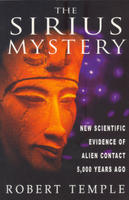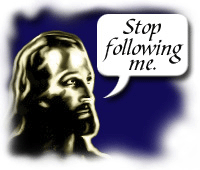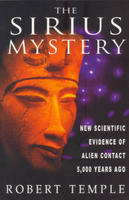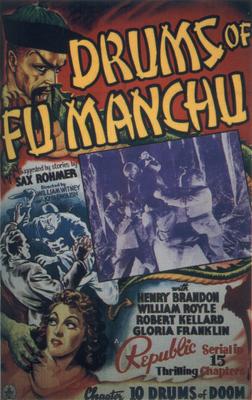 It seems to be an artist's rendition of concerns about scientism that are in some sense revisited in every movie about robots taking over the world. It's odd but artists are sometimes prophetic. For some time many artists have been predicting the advent of another form of sentience or life in one way or another, from Frankenstein, to aliens, to robots or sentient computer networks.
It seems to be an artist's rendition of concerns about scientism that are in some sense revisited in every movie about robots taking over the world. It's odd but artists are sometimes prophetic. For some time many artists have been predicting the advent of another form of sentience or life in one way or another, from Frankenstein, to aliens, to robots or sentient computer networks.Yet here are some of the reasons that man does not seem to be able to breath the breath of Life into matter. Other than the little matter of the mind there is the basic natural categorical distinction between Life and Death:
It is an empirical fact that living matter behaves very differently from nonliving matter. Broken bones heal, broken stones don’t. The question is: What is the physical basis of this difference? A little reflection shows that it must lie in the specific nature of living matter. Why? Because robots, computers, and all other cybernetically organized sys tems designed by us cannot instantiate this self-preserving property of living matter, however well they may simulate certain aspects of it. Why not? Because the function or goal state of a manmade system lies entirely outside of the system itself, in the mind of the human designer.(Uncommon Dissent: Intellectuals Who Find Darwinism Unconvincing
For example, Kismet’s function is to interact with a human interlocutor in a lifelike fashion. Its creators have achieved this result by imposing a set of boundary conditions upon the matter of which Kismet is made; the bits and pieces that comprise Kismet have no tendency to seek this goal state on their own. The success or failure of Kismet’s performance is invisible to Kismet itself—it exists entirely in the eye of the beholder. This will remain true of all future robots made of inorganic parts, no matter how sophisticated they become. That is because the second law of thermodynamics will ensure that the configuration of a robot’s parts that gives rise to a humanly desired goal state will continuously degrade; at the same time, there is nothing intrinsic to the robot that is striving to oppose that degradation and preserve the goal state. Adding more feedback loops is futile. It can improve performance from the human point of view, but it cannot cause an ontological shift from an external to an internal criterion of what counts as a good performance. No matter how cleverly contrived, robots will always remain simulacra of living things; they will never live. To be alive is to value one’s own continued existence as a functionally organized system.
[...]
What is it about living matter that makes it care about its own self-preservation? That is the real question at the heart of the mystery of life.
Edited by William Dembski
Why I Am Not a Darwinist, by James Barham :188-189)
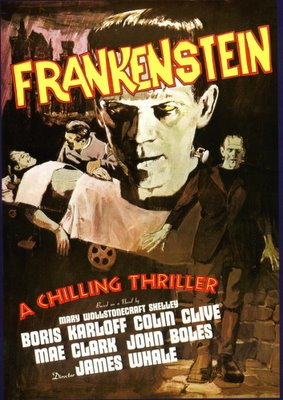 It seems to me that what is being come across is the fact/value split between being dead and alive. Recently a Christian basically deconstructed the modern notion that this split exists. And I agree with her, because for living things that have self-evident truths that are evident in the Self apparently written right into the fabric of their current state of existence it would be false. So it also almost inevitably seems to lead the mental retards that try to believe it into contradictory self-refutations in the use of language, as language is an artifact of sentience written in sentences. Perhaps if we were more like rocks ontologically and mere matter in motion it would make sense to nihilistically devalue "values" as a matter of course. But it seems it is not possible for sentient beings or Homo sapiens to write such a sentence or use words to think such a thought.
It seems to me that what is being come across is the fact/value split between being dead and alive. Recently a Christian basically deconstructed the modern notion that this split exists. And I agree with her, because for living things that have self-evident truths that are evident in the Self apparently written right into the fabric of their current state of existence it would be false. So it also almost inevitably seems to lead the mental retards that try to believe it into contradictory self-refutations in the use of language, as language is an artifact of sentience written in sentences. Perhaps if we were more like rocks ontologically and mere matter in motion it would make sense to nihilistically devalue "values" as a matter of course. But it seems it is not possible for sentient beings or Homo sapiens to write such a sentence or use words to think such a thought.Based on an incorrect philosophy Darwinists often seem to be arguing that Life is like an unnatural selection that must "struggle" against the second law of thermodynamics and other forms of so-called natural selections. But it seems to me that Life is the only thing capable of making selections, if anything does. If it does not, then Darwinists ought to stop combining the term with pollutions of language to imply that anything is being "selected." Nature does not select anything, no more than a puddle "selects" to ripple when you throw a rock in it. Once upon a time a puddle got angry about rocks being thrown in it and said: "Now I shall now select to ripple!" It seems that only some natural phenomena are to be called natural selections for philosophical and theological reasons. I.e., to link observations to the philosophical and theological notion that no sort of intelligence can be making a selection, never has and cannot be recognized by observation if it did.
But perhaps it is Life that makes natural selections and Nature that tends to make unnatural selections against Life. I wonder if that would count as a natural explanation according to those who believe in the latest forms of scientism? Hmmm, Dan?
Interesting to note that if the ontological and categorical distinction between living matter and dead matter is true then: "No matter how cleverly contrived, robots will always remain
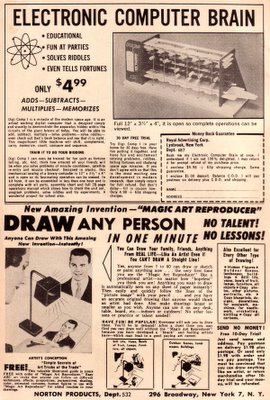 simulacra of living things...." Computers have come a long way but what will have to happen is some sort of merging of Death with Life through biotechnology, which those with the urge to merge will most likely one day bring about. I just wonder what inhuman type of minds might be thinking through new brains, as the urge to merge is not new. Perhaps there is something to the stories of the artists on the topic. It all seems far off to me.
simulacra of living things...." Computers have come a long way but what will have to happen is some sort of merging of Death with Life through biotechnology, which those with the urge to merge will most likely one day bring about. I just wonder what inhuman type of minds might be thinking through new brains, as the urge to merge is not new. Perhaps there is something to the stories of the artists on the topic. It all seems far off to me.Yet note this argument which also has some empirical weight to it:
Our brains are, if you will, “quantum computers.” But they are not of the sort now making headlines. Subtle quantum effects in the brain afford us a capacity we would not otherwise have, yet to make maximum use of such effects our natural brains are now designing even better synthetic ones. These employ quantum principles directly, not, as in the human brain, in subtle and nearly invisible fashion. ....if quantum processes are the source within the human brain of genuine thought—as also of genuine will, intention, and choice—then the quantum computers we are on the verge of designing (or whose evolution we are at least facilitating) may turn themselves into genuine sentient beings. They may have as much intelligence as we have, quite possibly more: There are severe limits to how much quantum weirdness the human brain may employ...limits on how much a synthetic brain might employ are far less severe. Vast, synthetic, self-evolving, superintelligent, and completely sentient computers must surely sound like pure science fiction, but they are not.(The Quantum Brain
By Jeffrey Satinover :6-8)
 Yet again, what type of mind would be thinking through these brains? After all the soul seems to be a marriage of being emerging from the flesh and thinking through it at the same time. It is not all just an unfolding from, as the mind comes to shape its own Self. But nevermind...it's possible to meander around infinitely on the subject.
Yet again, what type of mind would be thinking through these brains? After all the soul seems to be a marriage of being emerging from the flesh and thinking through it at the same time. It is not all just an unfolding from, as the mind comes to shape its own Self. But nevermind...it's possible to meander around infinitely on the subject.








